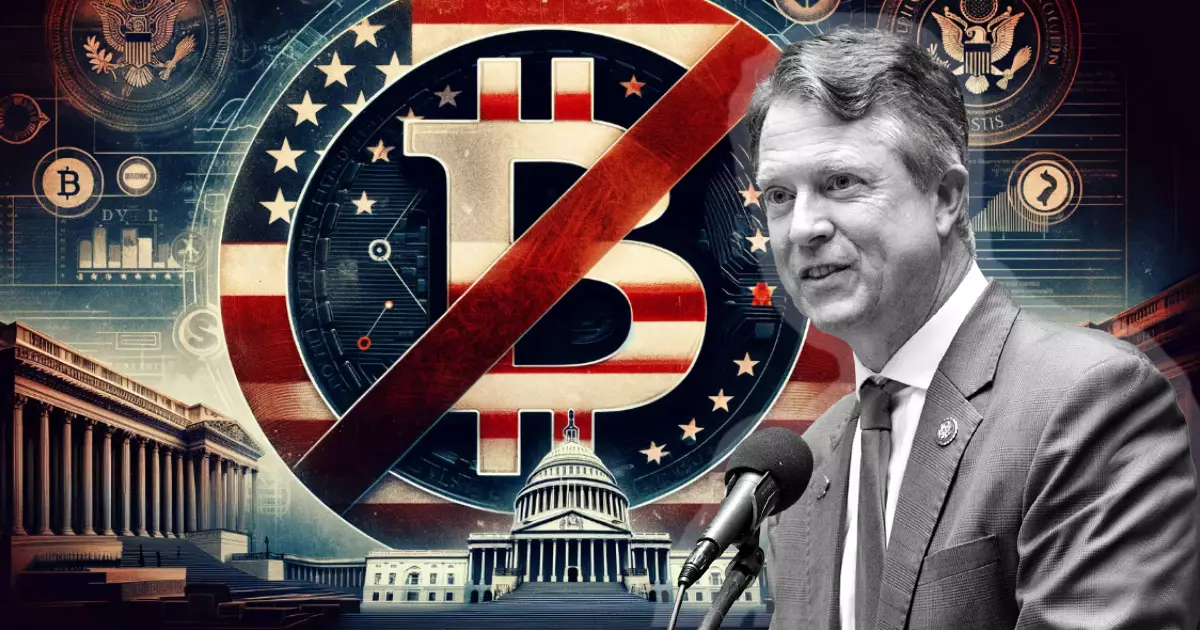U.S. Senator Roger Marshall recently made a surprising admission about the origin of the Digital Asset Anti-Money Laundering Act, which has been met with criticism from the cryptocurrency community. This revelation has sparked a heated debate among various stakeholders in the crypto industry.
During a speech at the Parliamentary Intelligence-Security Forum, Senator Marshall disclosed that the American Bankers Association had assisted him and Senator Elizabeth Warren in formulating the contentious legislation. The senators sought the association’s guidance to ensure that cryptocurrencies are held to the same standards as traditional banking institutions. This revelation has triggered significant backlash from the crypto community.
Disappointment in Lawmakers Advocating for Banks
The involvement of the American Bankers Association in the crafting of the Digital Asset Anti-Money Laundering Act has disappointed many individuals within the cryptocurrency industry. Coinbase CEO Brian Armstrong expressed his dissatisfaction with lawmakers favoring traditional banks over the emerging crypto industry. This sentiment reflects the growing frustration among Americans with the existing financial system.
Critics argue that opposing cryptocurrencies could have adverse political consequences for lawmakers, particularly leading up to the 2024 elections. By disregarding the potential benefits of cryptocurrencies and siding with established financial institutions, politicians may risk alienating a significant portion of the electorate.
Supporters of the Digital Asset Anti-Money Laundering Act argue that the bill aims to address existing loopholes in the crypto industry and bring it in line with established anti-money laundering and countering the financing of terrorism frameworks. Wall Street banks and several US lawmakers have rallied behind the legislation, advocating for increased regulatory oversight in the sector. The bill’s proponents believe that enhanced regulations are necessary to ensure the legitimacy and security of the digital asset ecosystem.
Senator Warren’s recent critique of crypto companies, accusing them of employing former defense and law enforcement officials to lobby against regulations, has further ignited the debate. Her comments have faced severe backlash from the crypto community, who believe that she is misinformed about the industry’s intentions. Critics argue that her stance jeopardizes the principles of free speech and participation in the policymaking process.
Industry leaders and experts have not held back in their criticism of Senator Warren. Galaxy Digital CEO Mike Novogratz emphasized that Warren’s desire for attention has clouded her judgment and turned her into a disingenuous figure. He suggests that her motives are driven by the pursuit of media attention rather than a comprehensive understanding of the crypto industry. Similarly, Pierre Rochard, the Research VP of Riot Platforms, argued that Warren’s stance is an attack on the First Amendment, preventing proponents of Bitcoin from engaging in the policymaking process.
The involvement of the American Bankers Association in the crafting of the Digital Asset Anti-Money Laundering Act has raised concerns within the cryptocurrency community. The legislation’s critics argue that it favors traditional financial institutions over the crypto industry. Additionally, Senator Warren’s recent comments highlighting the influence of crypto companies on national security have faced widespread backlash. As the debate intensifies, it remains to be seen how the Digital Asset Anti-Money Laundering Act will proceed and what implications it may have for the future of cryptocurrencies in the United States.


Leave a Reply